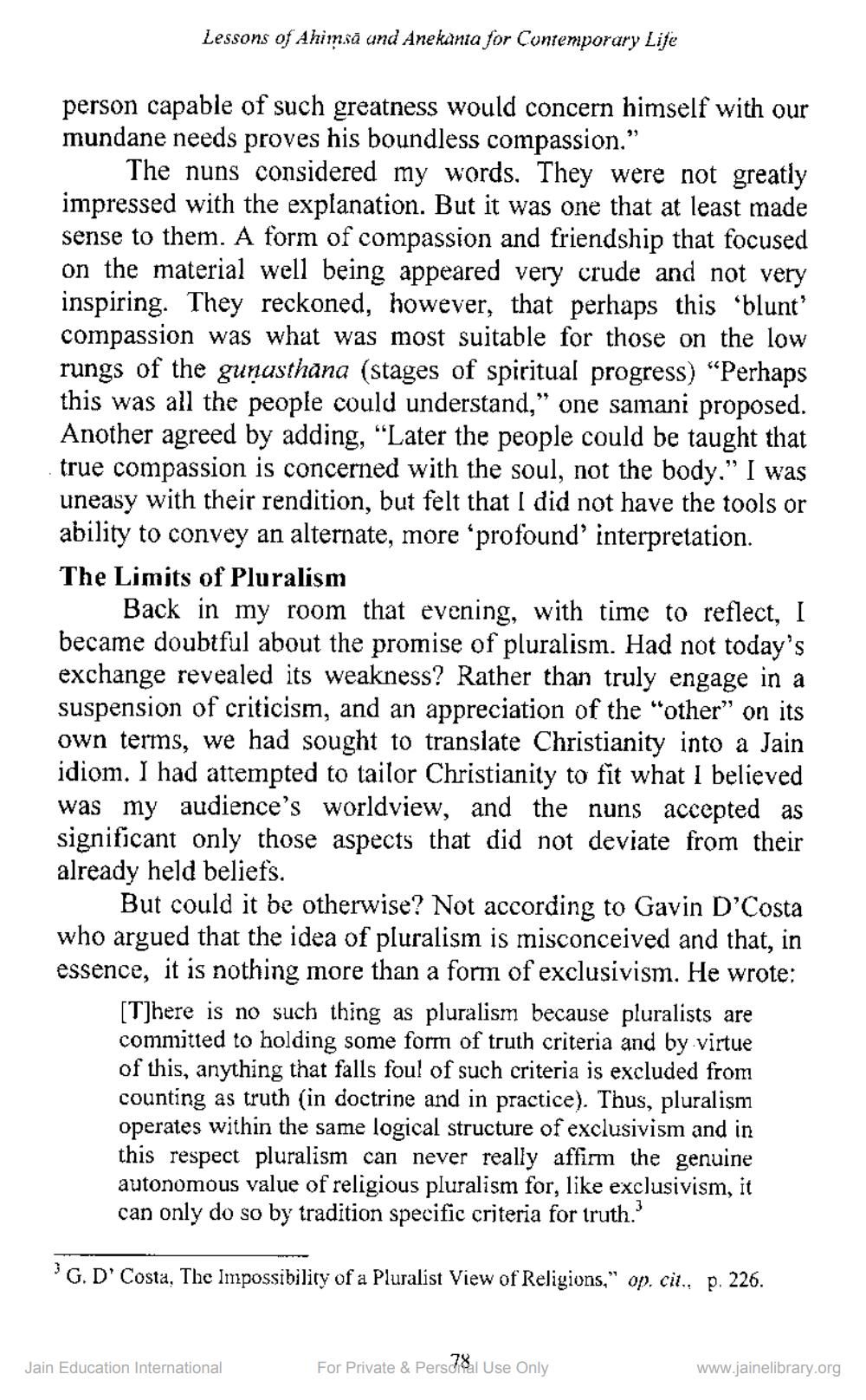Book Title: Anekanta Ahimsa and Question of Pluralism Author(s): Anne Vallely Publisher: Z_Lessons_of_Ahimsa_and_Anekanta_for_Contemporary_Life_014006.pdf View full book textPage 6
________________ Lessons of Ahimsā und Anekania for Contemporary Life person capable of such greatness would concern himself with our mundane needs proves his boundless compassion.” The nuns considered my words. They were not greatly impressed with the explanation. But it was one that at least made sense to them. A form of compassion and friendship that focused on the material well being appeared very crude and not very inspiring. They reckoned, however, that perhaps this 'blunt compassion was what was most suitable for those on the low rungs of the gunasthana (stages of spiritual progress) “Perhaps this was all the people could understand," one samani proposed. Another agreed by adding, "Later the people could be taught that true compassion is concerned with the soul, not the body." I was uneasy with their rendition, but felt that I did not have the tools or ability to convey an alternate, more 'profound' interpretation. The Limits of Pluralism Back in my room that evening, with time to reflect, I became doubtful about the promise of pluralism. Had not today's exchange revealed its weakness? Rather than truly engage in a suspension of criticism, and an appreciation of the "other" on its own terms, we had sought to translate Christianity into a Jain idiom. I had attempted to tailor Christianity to fit what I believed was my audience's worldview, and the nuns accepted as significant only those aspects that did not deviate from their already held beliefs. But could it be otherwise? Not according to Gavin D'Costa who argued that the idea of pluralism is misconceived and that, in essence, it is nothing more than a form of exclusivism. He wrote: [T]here is no such thing as pluralism because pluralists are committed to holding some form of truth criteria and by virtue of this, anything that falls foul of such criteria is excluded from counting as truth (in doctrine and in practice). Thus, pluralism operates within the same logical structure of exclusivism and in this respect pluralism can never really affirm the genuine autonomous value of religious pluralism for, like exclusivism, it can only do so by tradition specific criteria for truth.' 3 G. D'Costa, The Impossibility of a Pluralist View of Religions," op. cit., p. 226. Jain Education International For Private & Persdal Use Only www.jainelibrary.orgPage Navigation
1 ... 4 5 6 7 8 9 10
